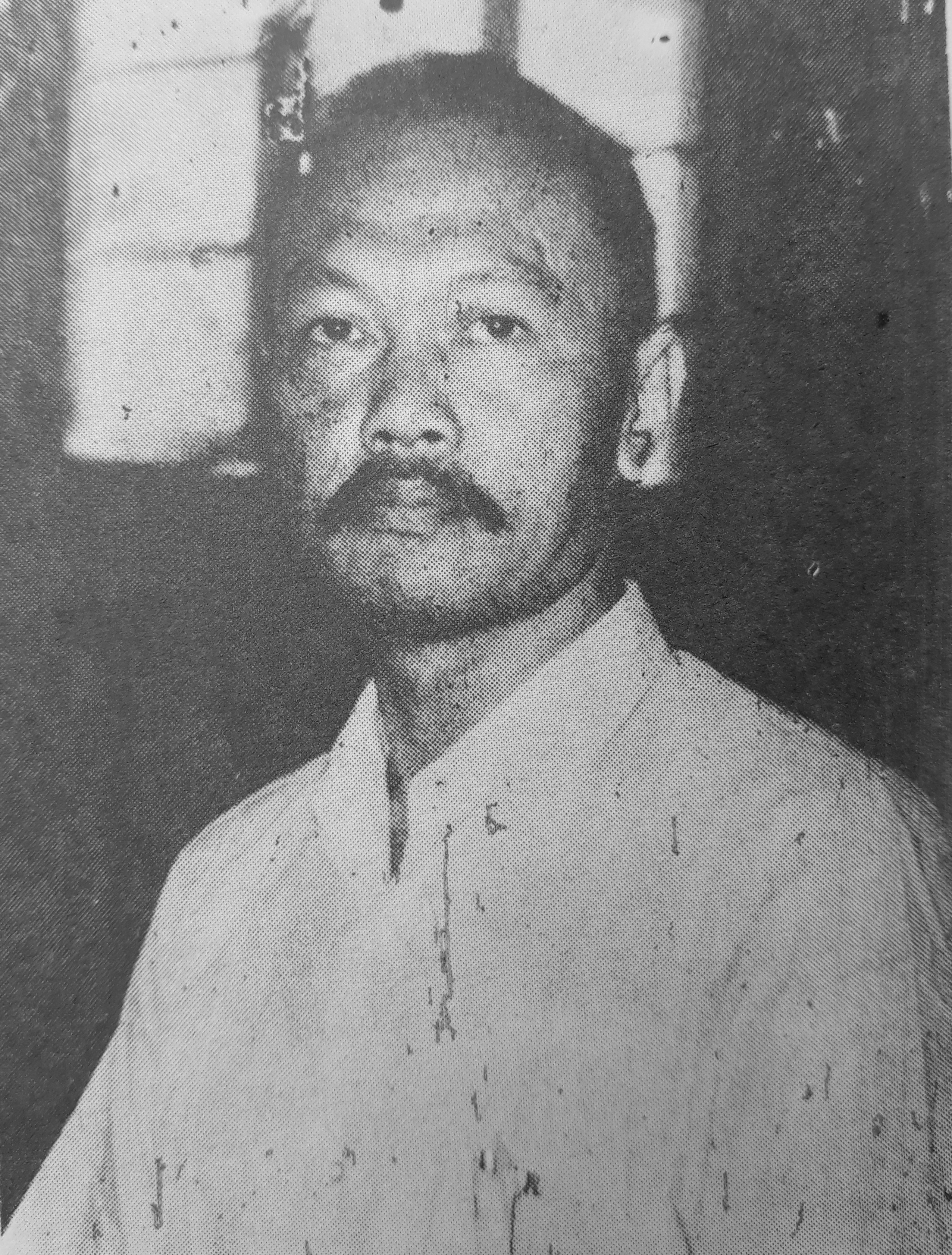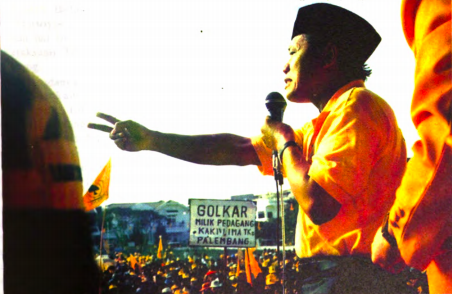|
General Elections Institution
The General Elections Institution ( id, Lembaga Pemilihan Umum, abbreviated as ''LPU'') was the body that organises elections in Indonesia during the New Order. Its responsibilities include deciding which parties can contest elections, organising the voting and announcing the results and seats won in the various branches of the government. The institution is under the Ministry of Home Affairs. History After the rise of Suharto as the president of Indonesia in 1967, Suharto began to prepare for elections in order to legitimize his seat. The first general elections in the New Order was prepared to be held in 1971 with Law Number 15 of 1969. The law stipulates that the president would form the General Elections Institution for the upcoming election. Suharto would later form the General Elections Institution by the Presidential Decree Number 3 of 1970. According to the law, the General Elections Institution was a permanent institution with three elements, the executive council, the ... [...More Info...] [...Related Items...] OR: [Wikipedia] [Google] [Baidu] |
Indonesian Electoral Committee
Indonesian is anything of, from, or related to Indonesia, an archipelagic country in Southeast Asia. It may refer to: * Indonesians, citizens of Indonesia ** Native Indonesians, diverse groups of local inhabitants of the archipelago ** Indonesian women, overview of women's history and contemporary situations * Indonesian language (Indonesian: ''Bahasa Indonesia''), the official language of Indonesia ** Indonesian languages, overview of some of the 700 languages spoken in Indonesia ** Indonesian names, customs reflecting the multicultural and polyglot nature of Indonesia * Indonesian culture, a complex of indigenous customs and foreign influences ** Indonesian art, various artistic expressions and artworks in the archipelago ** Indonesian cinema, a struggling and developing industry ** Indonesian literature, literature from Indonesia and Southeast Asia with shared language roots ** Indonesian music, hundreds of forms of traditional and contemporary music ** Indonesian philosophy, ... [...More Info...] [...Related Items...] OR: [Wikipedia] [Google] [Baidu] |
Soepardjo Rustam, 25 Tahun Pembangunan Pemerintah Orde Baru
Mustafa Sjarief Soepardjo (23 March 1923 – 16 May 1970), also known as Supardjo, was a Brigadier General in the Indonesian Army. He was one of the leaders of the 30 September Movement, a group that killed six of the army's top generals and launched a failed coup attempt on 30 September 1965. Biography Soepardjo was regimental commander of the Siliwangi Division which was stationed in West Java. As a result of his pro-Communist sympathies and actions, he was sent to Kalimantan, away from the centres of power on Java, and took part in the Indonesian actions against British and Malaysian troops in Borneo (see '' Konfrontasi''). Based at Menggaian in West Kalimantan, he led the Fourth Combat Command of KOSTRAD, the army's strategic reserve. On 28 September 1965, he left his post without the knowledge of then KOSTRAD commander, Suharto (later President of Indonesia). He had received a telegram from his wife stating that his child was sick. At Soepardjo's trial in 1967, an ex-Commun ... [...More Info...] [...Related Items...] OR: [Wikipedia] [Google] [Baidu] |
Politics Of Indonesia
The politics of Indonesia take place in the framework of a presidential representative democratic republic whereby the President of Indonesia is both head of state and head of government and of a multi-party system. Executive power is exercised by the government. Legislative power is vested in both the government and the bicameral People's Consultative Assembly. The judiciary is independent of the executive and the legislature.King, Blair. Inside Indonesia:Constitutional tinkering: The search for consensus is taking time access date 23 May 2009 The 1945 constitution provided for a limited separation of executive, legislative and judicial power. The governmental system has been described as "presidential with parliamentary characteristics". Following the Indonesian riots of May 1998 and the resignation of President Suharto, several political reforms were set in motion via amendments to the Constitution of Indonesia, which resulted in changes to all branches of government ... [...More Info...] [...Related Items...] OR: [Wikipedia] [Google] [Baidu] |
Elections In Indonesia
Elections in Indonesia have taken place since 1955 to elect a legislature. At a national level, Indonesian people did not elect a head of state – the president – until 2004. Since then, the president is elected for a five-year term, as are the 575-member People's Representative Council (''Dewan Perwakilan Rakyat'', DPR), the 136-seat Regional Representative Council (''Dewan Perwakilan Daerah''), in addition to provincial and municipal legislative councils. Members of the People's Representative Council are elected by proportional representation from multi-candidate constituencies. Currently, there are 77 constituencies in Indonesia, and each returns 3-10 Members of Parliament based on population. Under Indonesia's multi-party system, no one party has yet been able to secure an outright majority in a democratic election; parties have needed to work together in coalition governments. Members of the Regional Representative Council are elected by single no ... [...More Info...] [...Related Items...] OR: [Wikipedia] [Google] [Baidu] |
1997 Indonesian Legislative Election
Legislative elections were held in Indonesia on 29 May 1997. There were three simultaneous elections in one because voters were electing members of two levels of regional government (provincial and regency levels) as well as the national-level People's Representative Council. This was to be the last election of President Suharto's New Order regime, which collapsed a year later. Like the preceding New Order elections, it was won outright by the Golkar organization. Background The political and social environment during the 1997 legislative elections was substantially different than in previous elections. There was a widespread belief among the public that this election would be Suharto's last term as president. However, there was no clear successor to him or his New Order regime. This led to many officials in the government demonstrating their loyalty to Suharto and to gain his favor by delivering a victory for Golkar. This led to what Professor of Politics and Government Cor ... [...More Info...] [...Related Items...] OR: [Wikipedia] [Google] [Baidu] |
Yogi Suardi Memet
A yogi is a practitioner of Yoga, including a sannyasin or practitioner of meditation in Indian religions.A. K. Banerjea (2014), ''Philosophy of Gorakhnath with Goraksha-Vacana-Sangraha'', Motilal Banarsidass, , pp. xxiii, 297-299, 331 The feminine form, sometimes used in English, is yogini. Yogi has since the 12th century CE also denoted members of the Nath siddha tradition of Hinduism, and in Hinduism, Buddhism and Jainism, a practitioner of tantra.Rita Gross (1993), ''Buddhism After Patriarchy'', SUNY Press, , pages 85–88 In Hindu mythology, the god Shiva and the goddess Parvati are depicted as an emblematic yogi–yogini pair. Etymology In Classical Sanskrit, the word ''yogi'' (Sanskrit: masc ', योगी; fem ') is derived from ''yogin'', which refers to a practitioner of yoga. ''Yogi'' is technically male, and ''yoginī'' is the term used for female practitioners. The two terms are still used with those meanings today, but the word ''yogi'' is also used gen ... [...More Info...] [...Related Items...] OR: [Wikipedia] [Google] [Baidu] |
Yogie Suardi Memet
Raden Muhammad Yogie Suardi Memet (16 May 1929 – 7 June 2007) was an Indonesian military officer who also served as Minister of Home Affairs under Suharto between 1993 and 1998, and as Governor of West Java between 1985 and 1993. He was also commander of the special forces unit Kopassandha and of the Siliwangi Military Region. Born in Cirebon, Yogie joined the armed forces as a student soldier during the Indonesian National Revolution, and continued to serve in the army. Darul Islam leader Abdul Kahar Muzakkar was killed by a soldier under his command in 1965, and by 1975 he had been appointed as commander of the special forces unit Kopassandha. He oversaw Kopassandha's operations in East Timor during the Indonesian invasion, although later on he was appointed to other posts and he passed on command of Kopassandha in 1983. After his military career, he became governor of West Java in 1985, his second term being interrupted in 1993 when he was appointed as Home Affairs Ministe ... [...More Info...] [...Related Items...] OR: [Wikipedia] [Google] [Baidu] |
1992 Indonesian Legislative Election
Legislative elections were held in Indonesia on 9 June 1992, to select 400 of the 500 members of the People's Representative Council (DPR). The election was the sixth legislative elections since Proclamation of Indonesian Independence, Indonesian independence and the fifth legislative elections under the New Order (Indonesia), New Order regime of president Suharto. The election resulted in a clear victory for Golkar, which retained its status as the ruling party, although the opposition, under the United Development Party (PPP) and the Indonesian Democratic Party (PDI), saw their vote shares rise. Golkar had governed Indonesia since 1971 Indonesian legislative election, 1971, winning four consecutive elections. However, by the late 1980s, it had struggled with internal division, between the military wing and the civil and bureaucratic wing, as well as demands for more openness in government. The opposition, led mainly by the Islam in Indonesia, Islamic PPP and the Indonesian nation ... [...More Info...] [...Related Items...] OR: [Wikipedia] [Google] [Baidu] |
1987 Indonesian Legislative Election
Legislative elections were held in Indonesia on 23 April 1987, to elect 400 of the 500 members of the People's Representative Council (DPR), the national legislature. The election was the fifth legislative election in the country since independence and the fourth legislative election under President Suharto's New Order. The election resulted in an outright majority for Golkar, which retained its status as the ruling party of the country. According to the General Elections Institution, the election campaign began on 24 March and ended on 18 April, with a four-day election silence up until election day on 22 April. In addition, the New Order regime also implemented a number of regulations which benefited Golkar. These include a ban on the formation of party branches below the provincial level, a reduction in the campaign period (from 45 to 25 days), and a ban on criticism of government policies. Golkar, like in all other elections during the New Order, won an outright majority ... [...More Info...] [...Related Items...] OR: [Wikipedia] [Google] [Baidu] |
Aswismarmo
Aswismarmo (Jogjakarta, Dutch East Indies, 27 November 1925 – Jakarta, Indonesia, 12 January 2011) was an Indonesian Military major general who served as the general secretary of the General Elections Institution from 1983 until 1987. Early life Aswismarmo was born on 27 November 1925 in Yogyakarta. He was the son of Djayengdimedjo. He began his studies by learning at the RK HIS II, which he graduated in 1934, Gout HIK, which he graduated in 1942, and SMT Negeri Yogyakarta, which he graduated in 1945. Military career After pursuing civil education, he enrolled in the newly formed Indonesian Armed Forces. He became part of the intelligence service, serving in Okinawa in 1960, and in West Germany since 1961. After serving in intelligence, he became a teacher in the Officer Advanced Course from 1967, and in the Indonesian Army Command and General Staff College from 1968. Political career After retiring from the military, he was offered a position as the ambassador of Indo ... [...More Info...] [...Related Items...] OR: [Wikipedia] [Google] [Baidu] |





